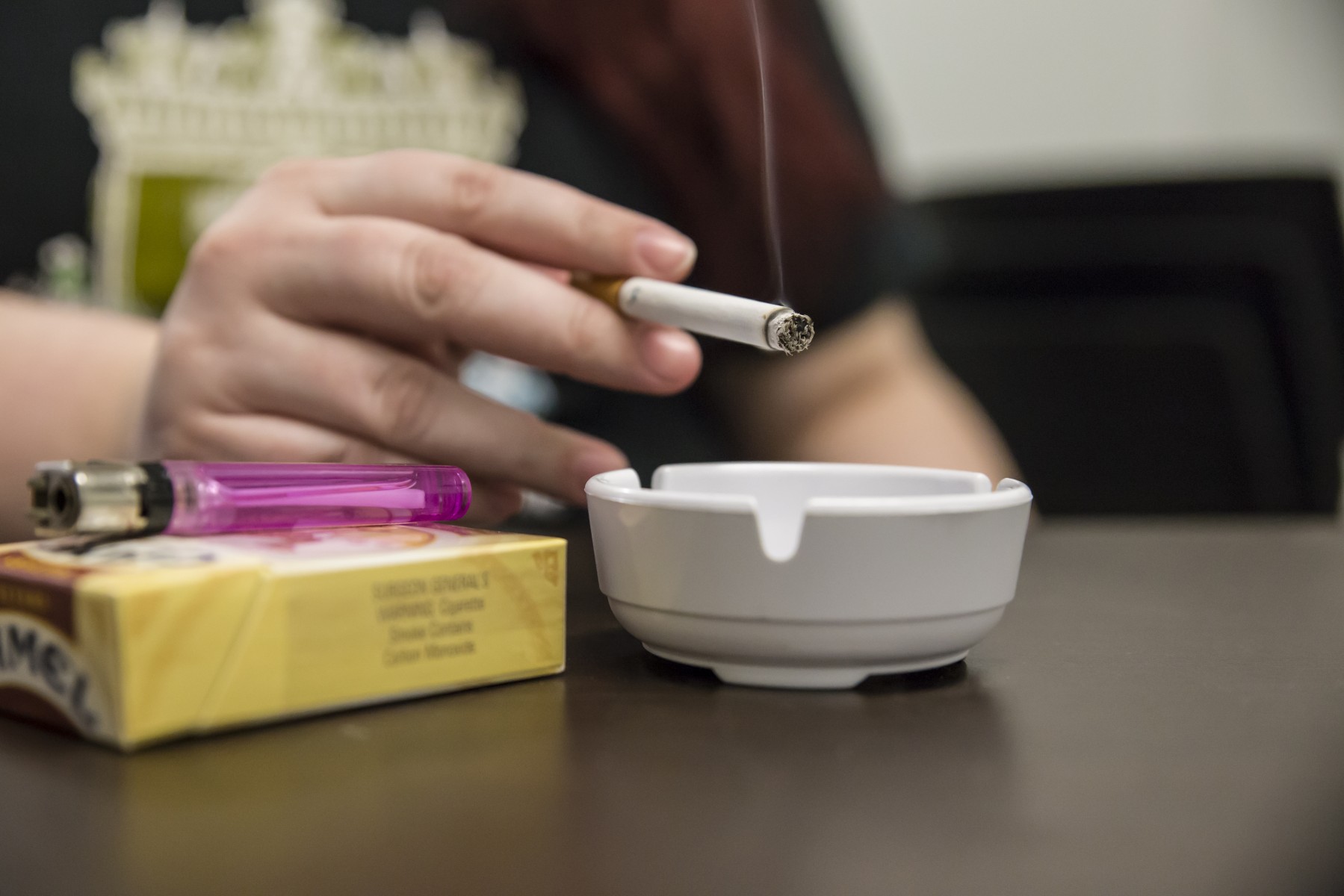Dr. Kim Pulvers: Helping Smokers Kick the Habit
The numbers are staggering.
According to the Centers for Disease Control and Prevention, more than 16 million Americans are living with a malady caused by smoking, which remains the leading cause of preventable death. Tobacco use is causing nearly 6 million deaths annually worldwide. In the United State, more than 480,000 deaths per year are attributed to smoking, including nearly 42,000 resulting from exposure to second-hand smoke.
Kim Pulvers, an associate professor of psychology at Cal State San Marcos, is trying to do something about it through her research into addiction and smoking cessation.
“It’s a fascinating area that has long interested me,” she said.
Among her findings: designated smoking areas may be doing more harm than good.
“Designated smoking areas leave people more susceptible, not only to secondhand exposure, but because it leads to the faulty perception that more people are using tobacco than actually do,” said Pulvers. “If you think that a lot of other people are engaging in a behavior, it makes it more likely that you will engage in that behavior.”
The most effective policy, Pulvers said, is one that bans all tobacco use, including electronic cigarettes, from public places.
California has one of the most comprehensive tobacco control programs in the country and, as a result, has one of the lowest smoking rates in the nation. However, while state restrictions have driven rates of heavy smoking down, Pulvers’ research shows that light and nondaily smoking has risen, especially among members of ethnic minority groups.
“Nearly 80 percent of Latinos and almost 75 percent of African Americans who smoke are light or nondaily smokers, compared to about 50 percent of non-Hispanic Whites,” she said.
Pulvers hopes that her research will stimulate increased tobacco control efforts and clinical attention to light and nondaily smokers. It has already earned praise from many at CSUSM.
An Innovative Clinical Tobacco Researcher
“Dr. Pulvers is extremely innovative in her field of clinical tobacco research,” said Devan Romero, a kinesiology professor who has worked with Pulvers on a number of research projects. “She specializes in utilizing many clinical interventions for tobacco cessation, including examining alternative tobacco products, implementing various psychological measures and approaches, as well as including additional innovative approaches to her work, such as motivational interviewing.”
Born and raised a New Jersey suburb of New York City, Pulvers earned her bachelor’s degree in psychology from Westmont College in Santa Barbara, where she met her husband, Ron Pulvers, the men’s soccer coach at CSUSM. She earned her master’s of public health from the University of Kansas concurrently with completing her Ph.D. at Kansas in clinical psychology.
It was at the University of Kansas where she got hooked on researching addictive behaviors and smoking cessation.
“It really happened opportunistically, but I came to really enjoy the work,” she said.
When her husband was hired to launch the Cal State San Marcos soccer program, the couple moved out West and Pulvers began her postdoctoral work at the UC San Diego Moores Cancer Center.
While working at the Moores Cancer Center, Pulvers taught a psychology class at Cal State San Marcos. Her extensive background helped her land an assignment teaching a psychology course.
“I fell in love with it,” she said of CSUSM. “I was very impressed with the students, with the Department of Psychology, with the campus. The students worked hard to get here, many of them are first-generation college students, and they appreciate the educational opportunities. It was a very good fit for me.”
When a tenure-track position opened up, Pulvers jumped at the opportunity. She has been teaching at Cal State San Marcos since 2008.
“The mission of teaching students clearly comes first, but research and being an accomplished scientist is important here as well.”
In fact, she has deftly melded research and teaching into her work.
“Dr. Pulvers instills the University mission to include students as part of her research program and also contributes to many projects that reach out to the regional community,” said Romero. “She has expertise in public health, as well as clinical psychology, and is an extreme asset to CSUSM and contributes to realizing the vision and mission of our University."
E-cigarettes and Vaping
Her latest research involves the use of electronic cigarettes. Pulvers says the jury is still out on whether e-cigarettes help people who want to stop smoking.
“Dr. Pulvers’ insights on and investigation of adolescent use of e-cigarettes and vaping is especially timely,” said Sharon Hamill, a psychology professor who has worked with both with Pulvers and Romero. “Research has just begun to explore the impact of these substances on health. Moreover, as little is known about the conditions under which students use these substances, our research is sure to provide new information on how we can intervene to reduce or eliminate students' exposure to potentially harmful substances.”
To those who want to quit smoking, Pulvers said persistence is key.
“Relapses are a normal part of the process,” she said. “It can take multiple attempts.”
Those attempts, though, will be far more successful through an approach that includes both counseling and licensed cessation aids such as nicotine gum, nicotine patches, and medications such as Zyban, an anti-depressant.
When it comes to counseling, there is no arguing with the data. Fewer than 15 percent of people trying to kick the habit succeed after a year if they go it alone. That number rises to 19.8 percent for those who undergo a single counseling session, and rises further to 26.7 percent for those who undergo multiple counseling sessions.
Counseling can be accessed on the phone through the California Smokers’ Helpline (1-800-NO BUTTS). Individual counseling for students is also available through the Student Health Center.



